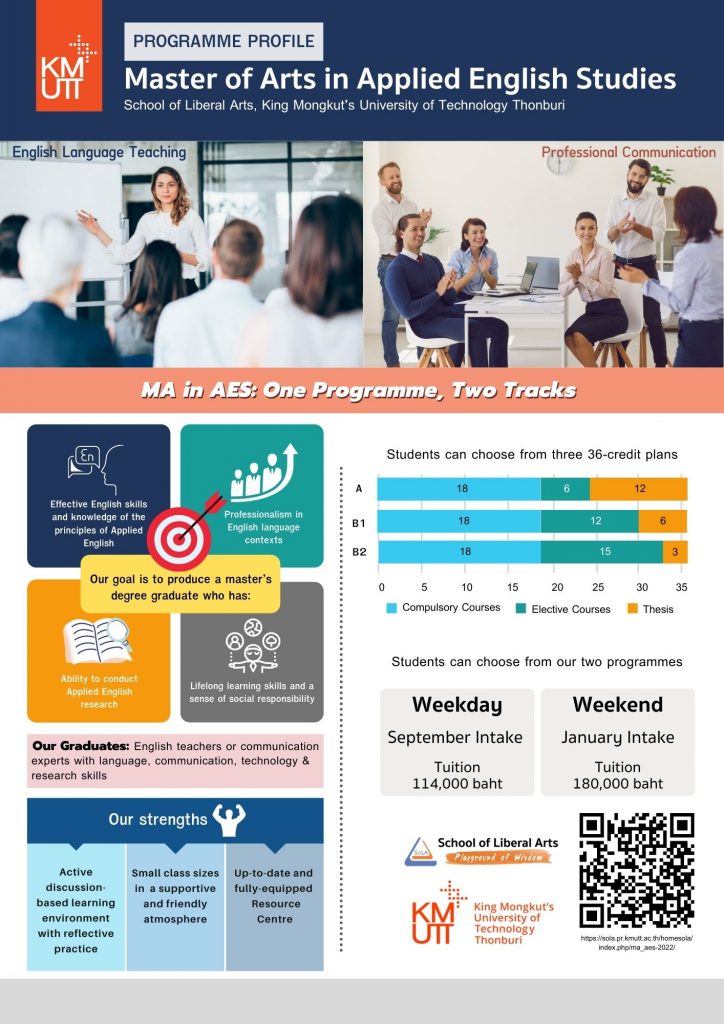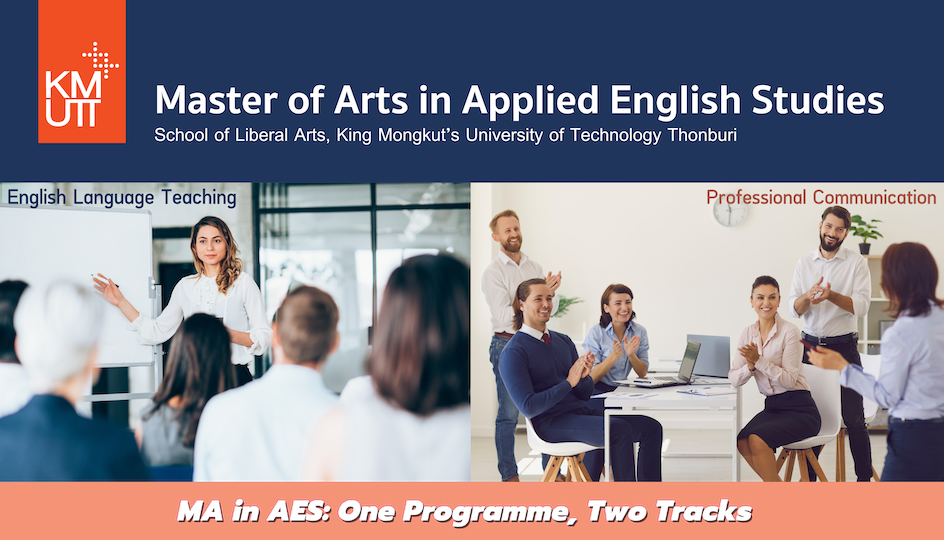
M.A. in Applied English Studies has been developed from our well-established Master’s Degrees in English Language Teaching and Professional and International Communication. It combines the strengths of the two founder programmes allowing participants to develop their professional and academic skills either for language education professions or other communication careers or academia.
Degree
Master of Arts Programme in Applied English Studies
Offered by
School of Liberal Arts
King Mongkut’s University of Technology Thonburi
This MA programme is suitable for people who are interested in becoming English teachers and/or communication experts with profound knowledge, skills and attitudes concerning pedagogy, language and communication theories, education and communication technology and research abilities.
Candidates can choose to study in the English Language Teaching Track (ELT) or the Professional Communication Track (PC) or tailor elective courses from both tracks to suit your interest.
Both tracks are offered both weekdays and Weekends. The programme aims to produce graduates with:
- Effective English skills and knowledge of the principles of Applied English
- Professionalism in English language contexts
- Ability to conduct Applied English research
- Life-long learning skills and a sense of social responsibility
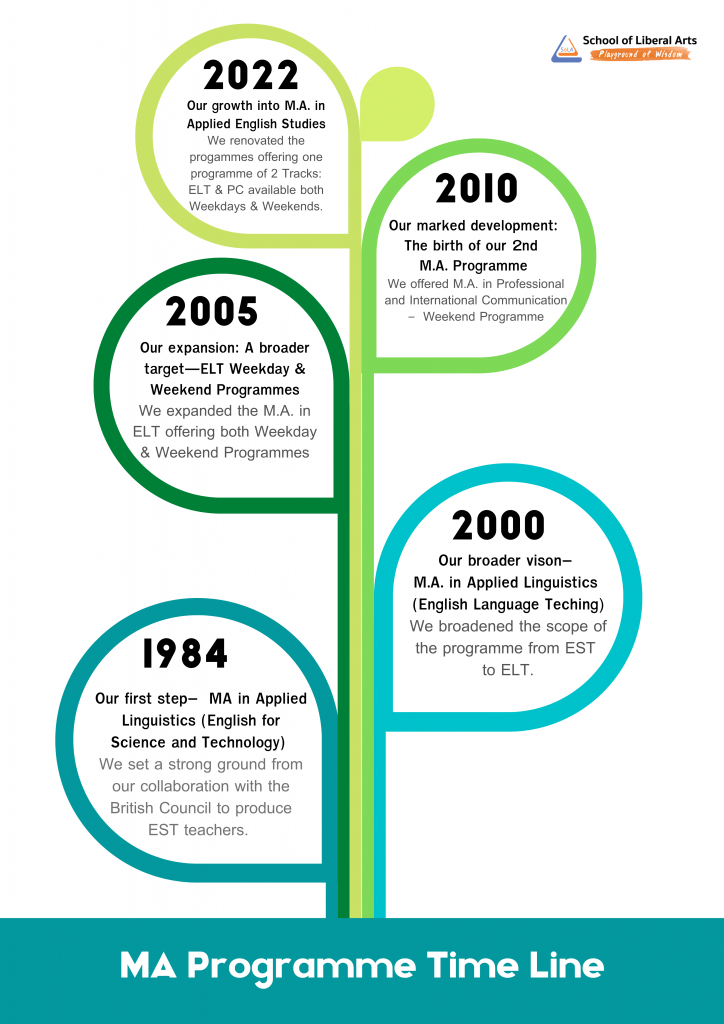
Full time staff
| Name | Major | Research area |
| Asst. Prof. Dr. Saowaluck Thepsuriwong | Applied Linguistics (2000, University of Reading, U.K.) | Reading strategies, ELT |
| Asst. Prof. Dr. Natjiree Jaturapitakkul | English as an International Language (2008, Chulalongkorn University, Thailand) | Language assessment, standardized test development, ESP testing, language learning and teaching |
| Dr. Rachanee Dersingh | Linguistics (2018, Chulalongkorn University, Thailand) | Communication strategies Second language acquisition |
| Assoc. Prof. Dr. Atipat Boonmoh | Applied Linguistics (2009, University of Warwick, U.K.) | Dictionary use, lexicography, autonomy, new technologies and language learning |
| Assoc. Prof. Dr. Pornapit Darasawang | TESOL (2000, University of Edinburgh, U.K.) | Learner autonomy, self-access learning |
| Assoc. Prof. Dr. Richard Watson Todd | English Language Studies (2003, University of Liverpool, U.K.) | Discourse analysis, educational innovation |
| Dr. Phanitphim Sojisirikul | English Language Studies (2009, Suranaree University of Technology, Thailand) | Approaches and methodologies, Course and curriculum development, Information and communication technology (ICT) in language teaching, English language testing |
| Assoc. Prof. Dr. Wannapa Trakulkasemsuk | English as an International Language (2008, Chulalongkorn University, Thailand) | World Englishes, English as a Lingua Franca, language and communication |
| Dr. Ornkanya Yaoharee | Cultural Perspectives and Comparative Education (2013, University of California, Santa Barbara, U.S.A) | pragmatics intercultural communication internationalization English in workplace communication |
| Dr. Punyapa Saengsri | English as an International Language (2008, Chulalongkorn University, Thailand) | Assessment and Evaluation Information in ELT and communication technology (ICT) in language teaching, |
| Asst. Prof. Dr. Sompatu Vungthong | 2017 Ph.D. (Early Childhood), Macquarie University, Australia. | ELT, Critical Discourse Analysis, Semiotics, Postmodern Literature |
| Dr. Ali Zahabi | 2016 Ph.D. (Applied Linguistics – TESOL), University Sains Malaysia, Malaysia. | Task-based language teaching, Language Assessment, Semiotics |
Teaching Staff
| Name | Major | Research area |
| Asst. Prof. Thanis Tangkitjaroenkun | English (2010, Chulalongkorn University, Thailand) | Language and Identity, English in East Asia, Post-colonial Literature |
| Dr. Hayo Reinders | Applied Language Studies & Linguistics (2005, University of Auckland, New Zealand) | The role of technology in learning and teaching, learner autonomy, self-access, task-based language teaching, language processing (attention and noticing), mobile learning |
Part-time Staff
| Name | Major | Research area |
| Dr. Stephen Louw | Applied Linguistics (2014, King Mongkut’s University of Technology Thonburi, Thailand) | Language Teacher Education |
| Dr. Kittinata Rhekhalilit | Linguistics (2014, Chulalongkorn University, Thailand) | Syntax, Sociolinguistics, Language Change & Variation, and Linguistic Landscape |
| Dr. Pasakara Chueasuai | Translation and Intercultual Studies (2010, University of Manchester, U.K.) | Translation Studies, Systemic Functional Linguistics, Social Semiotics, Multimodality |
| Asst. Prof. Dr. Apisak Pupipat | Applied Linguistics (1998, Columbia University, U.S.A.) | Using various media in English language teaching, Scientific English |
| Dr.Jonathan Rante Carreon | Applied Linguistics (2013, King Mongkut’s University of Technology Thonburi, Thailand) Linguistics (2013, Macquarie University, Australia) | Applied Linguistics |
M.A. in Applied English Studies
- Asst. Prof. Dr. Saowaluck Tepsuriwong (Program director)
- Asst. Prof. Dr. Natjiree Jaturapitakkul (Committee member)
- Dr. Rachnee Dersing (Committee member)
Study time: This programme is for 2 years.
Weekday programme: Monday – Friday (8.30 – 16.30)
Students study 2 semesters / academic year
Semester 1 August – December
Semester 2 January – May
Weekend programme: Saturday & Sunday (9.00 -16.00)
Students study 3 semester / academic year
Semester 1 January – May
Semester 2 June -July
Semester 3 August – December
Number of credits (36 credits)
There are three study plans available:
(Compulsory + Elective + Research)
Plan A2 (12-credit thesis) 36 credits (18+6+12)
Plan B1 (6-credit research study) 36 credits (18+12+6)
Plan B2 (3-credit special study) 36 credits (18+15+3)
| Plan A (12 credit thesis) | |
| Compulsory courses | 18 Credits |
| Elective courses | 6 Credits |
| Thesis | 12 Credits |
| Total | 36 Credits |
| Plan B1 (6 credit research) | |
| Compulsory courses | 18 Credits |
| Elective courses | 12 Credits |
| Thesis | 6 Credits |
| Total | 36 Credits |
| Plan B2 (3 credit independent study) | |
| Compulsory courses | 18 Credits |
| Elective courses | 15 Credits |
| Thesis | 3 Credits |
| Total | 36 Credits |
Weekday Programme Y1
| Semester 1(August – December) | Courses | Credits |
| AES 600 Academic skills | S/U | |
| AES 611 Analysing written communication | 3 | |
| AES 612 Analysing spoken communication | 3 | |
| AES 621 Language learning & use | 3 | |
| Total | 9 | |
| Semester 2 (January – May) | ||
| AES 631 Professionalism in inter workplaces | 3 | |
| AES 641 Technology in comm & education | 3 | |
| AES 651 Research methods | 3 | |
| AES xxx Elective course 1 | 3 | |
| Total | 12 |
Weekday Programme Y2
| Semester 1(August – December) | Courses | Credits |
| Plan A | AES xxx Elective course 2 AES 652 Thesis | 3 6 |
| Plan B1 | AES xxx Elective course 2 AES xxx Elective course 3 AES 653 Research | 3 3 3 |
| Plan B2 | AES xxx Elective course 2 AES xxx Elective course 3 AES xxx Elective course 4 | 3 3 3 |
| Total | 9 | |
| Semester 2 (January – May) | ||
| Plan A | AES 652 Thesis | 6 |
| Plan B1 | AES xxx Elective course 4 AES 653 Research | 3 3 |
| Plan B2 | AES xxx Elective course 5 AES 654 Special study | 3 3 |
| Total | 6 |
Weekend Programm Y1
| Semester 1(January – May) | Courses | Credits |
| AES 600 Academic skills | S/U | |
| AES 611 Analysing written communication | 3 | |
| AES 612 Analysing spoken communication | 3 | |
| Total | 6 | |
| Semester 2 (June -July) | ||
| AES 621 Language learning & use | 3 | |
| AES 631 Professionalism in inter workplaces | 3 | |
| Total | 6 | |
| Semester 3 (August – December) | ||
| AES 641 Technology in comm & education | 3 | |
| AES 651 Research methods | 3 | |
| AES xxx Elective course 1 | 3 | |
| Total | 9 |
Weekend Programme Y2
| Semester 1(January – May) | Courses | Credits |
| Plan A | AES xxx Elective course 2 AES 652 Thesis | 3 3 |
| Plan B1 | AES xxx Elective course 2 AES xxx Elective course 3 | 3 3 |
| Plan B2 | AES xxx Elective course 2 AES xxx Elective course 3 | 3 3 |
| Total | 6 | |
| Semester 2 (June – July) | ||
| Plan A | AES 652 Thesis | 3 |
| Plan B1 | AES xxx Elective course 4 AES 653 Research | 3 3 |
| Plan B2 | AES xxx Elective course 4 AES xxx Elective course 5 | 3 3 |
| Total | 3-6 | |
| Semester 3 (August – December) | ||
| Plan A | AES 652 Thesis | 6 |
| Plan B1 | AES 653 Research | 3 |
| Plan B2 | AES 654 Special study | 3 |
| Total | 3-6 |
Students will be qualified for a degree: Master of Arts in Applied English Studies when they
- complete at least 36 credits
- obtained minimum grade point average of 3.00
Students in Plan A have to pass the thesis defense and disseminate their studies in forms of a research paper or a conference proceedings.
Students in Plan B1 and B2 have the comprehensive exam. Students in these plans are encouraged to disseminate their studies, but it is not a compulsory part for graduation. Only Plan B1 students are required to do the research defense.
AES 652 Thesis in Applied English Studies 12 credits
An ethical in-depth research study on topics related to applied English studies which may include professional and international communication, language use, language learning and teaching, or issues in applied linguistics. Participants are required to design and undertake a research project, following a conventional research format, under the supervision of the thesis committee.
Learning outcomes:
- Conduct an ethical and in-depth research study in applied English studies
- Produce a thesis length around 20,000-25,000 words
- Disseminate a research paper in a national or international journals
AES 653 Research Study in Applied English Studies 6 credits
An ethical small-scale research study on topics related to applied English studies which may include professional and international communication, language use, language learning and teaching, or issues in applied linguistics. Participants are required to design and undertake a research project, following a conventional research format, under the supervision of the supervisor.
Learning outcomes:
- Conduct an ethical small-scale research study in applied English studies
- Produce a good research report length around 10,000-15,000 words.
AES 654 Special Study in Applied English Studies 3 credits
An ethical independent or special study on topics related to applied English studies which may include professional and international communication, language use, language learning and teaching, or issues in applied linguistics. Participants are required to design and undertake a research project, following a conventional research format, under the supervision of a supervisor.
Learning outcomes:
- Conduct an ethical independent or special study in applied English studies
- Produce a research paper length around 5,000-8,000 words.
Course Description
1. Foundation Course
AES 600 Academic Skills 3(3-0-9)(S/U)
Pre-requisite : None
Academic language. Academic reading and writing. Critical thinking. Presentation skills. Discussion skills. Citation and referencing.
Learning outcomes:
- Assess the reliability and argumentation in various academic texts
- Express an argument and give supporting details in writing
- Apply citations and references into an academic argumentative writing
- Use academic language in writing, giving presentations and discussion.
2. Compulsory courses
AES 611 Analysing Written Communication 3(3-0-9)
Pre-requisite : None
Features of written language. Communicative purposes. Cohesion and coherence. Information structure. Language-analytical frameworks and models. Lexical, grammatical and textual analysis. Text types. Text analysis. Genre analysis. Multimodality. Analyzing written discourse in professional contexts. Effective written communication project.
Learning outcomes:
- Identify features of effective and ineffective written communication
- Analyze a range of text types using appropriate frameworks and models
- Conduct a small-scale project on effective written communication
AES 612 Analysing Spoken Communication 3(3-0-9)
Pre-requisite : None
Features of spoken language. Pragmatics. Communicative functions. Cooperative principles. Genres of spoken discourse. Discourse analysis. Analyzing spoken discourse in professional contexts. Effective spoken communication projects.
Learning outcomes:
- Evaluate features of spoken discourse in professional contexts
- Analyze spoken discourses and suggest how to produce effective communication
- Conduct a small-scale project on effective spoken communication
AES 621 Language Learning and Use 3(3-0-9)
Pre-requisite : None
Conceptions of language learning (quantitative and qualitative conceptions, evidence and assessment of learning, learning ecology). Goals of language learning. Active learning. Major language learning theories, learning motivation and self-system. Complex dynamic systems. Theories of language use. Willingness to communicate. Socio-cultural theories and Intercultural competence. Communities of practice. Language ecology. Communication strategies.
Learning outcomes:
- Explain major learning theories and concepts related to language learning.
- Analyze factors influencing language learning performance and situations.
- Evaluate strategies used in communicative and learning contexts
AES 631 Professionalism in International Workplaces 3(3-0-9)
Pre-requisite : None
Definition and qualities of professionalism. Professional communication (i.e. interpersonal, group, organization and intercultural communication, and presentation skills). Design thinking. Qualities of effective management (leadership, team work, building trust, conflict management, project management, change management). Personality development. Business ethics and etiquettes. Global citizenship.
Learning outcomes:
- Identify strengths and weaknesses in their personality and ways to improve the weaknesses
- Analyse issues of professionalism and communication problems in the workplace and suggest solutions
- Plan and implement a preliminary project to apply the solutions.
AES 641 Technology in Communication and Education 3(3-0-9)
Pre-requisite : None
Computer and Information literacy. Technology for formal and informal language learning and professional development. Critical use of computer-based support tools for language learning and communication. Technology for qualitative and quantitative research.
Learning outcomes:
- Appraise the quality and usefulness of digital information using search strategies and critical evaluation of results
- Assess the use of computer-based language support tools
- Differentiate between qualitative and quantitative research and technological
AES 651 Research Methods 3(3-0-9)
Pre-requisite : None
Introduction to research in applied linguistics. Research paradigms and research designs. Consideration in doing research: variables, subject selection, reliability and validity. Finding a research topic. Setting up a research framework. Data collecting procedure. Research instruments. Analysing and interpreting quantitative and qualitative data. Writing up a research proposal. Ethical issues in conducting research.
Learning outcomes:
- Critique research designs based on appropriate paradigms
- Apply appropriate research paradigms and designs
- Plan and implement a research proposal
3. Elective courses
3.1 English Language Teaching Track
AES 622
Principles and Practice of English Language Teaching 3(3-0-9)
Pre-requisite : None
English Language Teaching (ELT) and ELT policies in Thailand. Roles and ethics of teachers. Teaching paradigms. Teaching points (language functions, skills, language features, strategies, and other competence). Learning objectives, learning activities, learning assessment and their alignment. Stages in a lesson and transitions. Lesson planning. Peer teaching and micro teaching. Teaching reflection.
Learning outcomes:
- Identify underlying principles of language teaching and learning in an English lesson.
- Develop an effective lesson plan for teaching selected learning objectives.
- Use appropriate teaching techniques and activities in a peer- and a micro-teaching situation.
- Critically evaluate self- and peer- teaching performance for teaching development
AES 623 Teaching Techniques in Practice 3(3-0-9)
Pre-requisite : None
Preparation for teaching. Implementation of teaching and learning. Quality assurance of teaching and learning. Supervision and feedback of the teaching. Reflections on teaching performance and self-evaluation.
Learning outcomes:
- Apply the principles of teaching into practices.
- Create appropriate lesson plans and use them effectively.
- Creatively design and create meaningful activities and materials.
- Monitor and reflect ones’ own teaching as well as give feedback to co-teachers.
AES 624 Testing and Assessment 3(3-0-9)
Pre-requisite : None
Introduction to testing and assessment. Designing tests. Item test types. Testing of language and the four skills. Item Analysis. Test banking. Non-testing classroom assessment. Alternative assessment. Research conducted in language testing. Issues in testing and evaluation
Learning outcomes:
- Develop and evaluate classroom language tests
- Evaluate test quality and improve poor test items
- Design alternative assessments and rubrics suitable for the teaching context
- Analyse research conducted in language testing
AES 625 Course and Materials Design 3(3-0-9)
Pre-requisite : None
Approaches to course design. Need and situation analysis. Learning outcomes. Course outlines. Course design and planning. Application of educational theories into practice. Current curriculum models and trends. Materials design and assessment. Related research in course design and materials development.
Learning outcomes:
- Conduct a need and situation analysis for a course design
- Design a course syllabus
- Design and assess teaching materials.
- Criticize research on course design and materials development
AES 626 English for Specific Purposes 3(3-0-9)
Pre-requisite : None
Definitions and characteristics of English for Specific Purposes (ESP). Identifying objectives. Variety of ESP. Methodology in teaching ESP. Types of communities. Philosophical approaches. Conducting needs analysis for specific ESP groups. Analyse research in ESP.
Learning outcomes:
- Analyse communicative purposes and language functions in ESP contexts
- Conduct a needs analysis of target learners
- Analyse research conducted in the field of ESP
AES 627 English literary studies 3(3-0-9)
Pre-requisite : None
Literary competence. Literature as sources of language learning and teaching. Analysing the language of prose, poetry and drama. Critical approaches to literary texts. Meaning, point of view and interpretation. Examining historical, social and cultural contexts in literature.
Learning outcomes:
- Explain the characteristics of each literary genre
- Apply critical theories in the interpretation of literary texts
- Explicate the history, society and culture related to literary texts
- Select literary texts for effective pedagogical practices
AES 628 Learner Autonomy in the Digital World 3(3-0-9)
Pre-requisite : None
Theories of language learner autonomy. Approaches to fostering learner autonomy. Teacher’s and students’ roles. Concepts of self-directed learning. Self-access learning. Learning management. Affective factors. Learning strategies. Concepts of language advising. Practices on language advising and reflection. Learner training. Technology with Learning autonomy and self-directed learning.
Learning outcomes:
- Create a language advising or learner training plan
- Give effective advice and consultations to support autonomous learning
- Apply appropriate technological tools to promote learner autonomy
AES 662 Contemporary Issues in English Education 3(3-0-9)
Pre-requisite : None
Goals and purposes of education. Ethics in ELT. Education reform. Professional development. Production of teachers. Contemporary issues in education (e.g. issues in English language teaching and assessment, competency-based education, online learning in ELT, international education and English-Medium Instruction).
Learning outcomes:
- Discuss current issues in English education.
- Analyze current trends in English education and their influences.
- Provide suggestions on how to deal with the issues
3.2 English for Professional Communication Track
AES 613 Sociolinguistics 3(3-0-9)
Pre-requisite : None
Language and society. Language and context. Language and culture. Language and identity. Language and gender. Language variation. Language contact. Language attitude. Multilingualism. Language policy and planning. Linguistic landscape.
Learning outcomes:
- Describe key concepts related to sociolinguistics
- Analyse and discuss research related to sociolinguistics
- Conduct a small-scale research project related to pedagogical or professional practices
AES 614 Discourse of Digital Media 3(3-0-9)
Pre-requisite : None
History of digital media. Computer-mediated communication. Digital media platforms and technologies. Genres and registers of digital discourse. Social media. Linguistic features of digital media. Genres of multimodal discourse. Digital discourse and society. Digital ethnography. Theories and approaches to the analysis of digital discourse. Research in digital media.
Learning outcomes:
- Assess and categorize different types of digital media platforms/technologies
- Investigate linguistic aspects of electronic social media
- Evaluate different approaches to analyzing digital discourse
- Create a small corpus of social media discourse and analyze it with respect to selected course topics
AES 632 การสื่อสารระหว่างวัฒนธรรม 3(3-0-9)
Intercultural Communication
Pre-requisite : None
Communication and culture. Concept of culture. Cultural differences and awareness. Cultural communication styles. Varying cultural expectations and ways to communicate appropriately. Cultural misunderstandings and issues in the workplace. Rapport and conflict management. Intercultural competence. Cultural adaptation.
Learning outcomes:
- Describe different cultural values, expectations and communication styles of people from different cultural backgrounds
- Analyse causes of cultural issues and conflicts in intercultural communication and discuss practical solutions
- Develop a mini-project to investigate issues in intercultural communication.
AES 633 English in Global Contexts 3(3-0-9)
Pre-requisite : None
Status of English as an international language. Historical and socio-cultural development. The process of language change: nativisation/localisation, codification and institutionalisation. Views on different varieties of English around the world. Use of English as a global lingua franca. Intelligibility and acceptance of new varieties of English.
Learning outcomes:
- Develop a critical understanding of English use in international contexts
- Explain characteristics of different English varieties using linguistic theories
- Discuss concepts of native and nonnative speakers of English, development process of new English varieties, intelligibility in English communication, attitudes and acceptance
- Conduct a small-scale research related to English use in international contexts
AES 634 Applied Semiotics 3(3-0-9)
Pre-requisite : None
Concepts and principles of social semiotics. Frameworks for an analysis of language, visual design, gesture, space and visual-verbal relations through a social semiotic perspective. Applying a social semiotic analysis to relevant texts and interactions.
Learning outcomes:
- Describe concepts and principles of social semiotics,
- Identify appropriate frameworks for an analysis of relevant texts and interactions
- Conduct a social semiotic analysis of authentic texts
AES 635 Organizational Communication 3(3-0-9)
Pre-requisite : None
Principles and characteristics of communication in the organization. Small talk and business talk. Politeness and power in the workplace. Corporate culture. Internal and external organization communication. Successful workplace communication vs miscommunication. Workplace spoken and written discourse. Workplace narrative. Digital literacy.
Learning outcomes:
- Identify organization culture and communication styles
- Examine strengths and weaknesses of communication styles and devise a plan for improvement
- Analyze workplace spoken and written discourse
AES 636 Applied Translation 3(3-0-9)
Pre-requisite : None
Principles and theories of translation. Contrastive analysis of English and Thai languages. Language and culture in translation. Practical translation both from Thai to English and from English to Thai in professional contexts. Error analysis in translation. Analyzing problems in translating. Technologies for translation and their limitations.
Learning outcomes:
- Translate various text types from Thai to English and English to Thai using translation theories
- Conduct contrastive analysis of English and Thai to identify major areas of problems in translation
- Use available technology to support translation
AES 637 Creative Content and Communication 3(3-0-9)
Pre-requisite : None
Communication theories. Persuasive communication. Mass communication. Channels and platforms of communication and communication strategies. Digital marketing. Content marketing and copywriting. Multimodal communication and design.
Learning outcomes:
- Discuss communication strategies appropriate for different communication purposes
- Evaluate the appropriacy of communication channels, platforms and strategies
- Develop creative stories for content marketing
3.3 General elective courses
AES 642 Corpus Applications 3(3-0-9)
Pre-requisite : None
History and purposes of Corpus Linguistics. Quantitative and qualitative approaches to corpus linguistics. Creation of corpora. Corpus annotation. Corpus software. Word lists. Frequency Lists. Keywords. Word clusters (n-grams). Use of corpora in professional settings and language learning. Research in corpus linguistics.
Learning outcomes:
- Analyze the difference between quantitative and qualitative corpus linguistics
- Use corpus linguistic software and web-based, large-scale corpora applying core methods
- Create a small English corpus in order to carry out linguistics research and write a report on the findings
AES 661 Seminar in Applied English Studies 3(3-0-9)
Pre-requisite : None
Research and current issues in Applied English Studies.
Learning outcomes:
- Review research and current issues in Applied English Studies
- Criticize and discuss research and issues in Applied English Studies
4. Thesis / Independent study
Plan A (12 credit thesis)
AES 652 Thesis in Applied English Studies 12 credits
Pre-requisite : AES 651 Research Methods
An ethical in-depth research study on topics related to applied English studies which may include professional and international communication, language use, language learning and teaching, or issues in applied linguistics. Participants are required to design and undertake a research project, following a conventional research format, under the supervision of the thesis committee.
Learning outcomes:
- Conduct an ethical and in-depth research study in applied English studies
- Produce a thesis length around 20,000-25,000 words
- Disseminate a research paper in a national or international journals
Plan B1 (6 credit research)
AES 653 Research Study in Applied English Studies 6 credits
Pre-requisite : AES 651 Research Methods
An ethical small-scale research study on topics related to applied English studies which may include professional and international communication, language use, language learning and teaching, or issues in applied linguistics. Participants are required to design and undertake a research project, following a conventional research format, under the supervision of the supervisor.
Learning outcomes:
- Conduct an ethical small-scale research study in applied English studies
- Produce a good research report length around 10,000-15,000 words.
Plan B2 (3 credit independent study)
AES 654 Special Study in Applied English Studies 3 credits
Pre-requisite : AES 651 Research Methods
An ethical independent or special study on topics related to applied English studies which may include professional and international communication, language use, language learning and teaching, or issues in applied linguistics. Participants are required to design and undertake a research project, following a conventional research format, under the supervision of a supervisor.
Learning outcomes:
- Conduct an ethical independent or special study in applied English studies
- Produce a research paper length around 5,000-8,000 words.
PLO 1 Demonstrate applicable knowledge and skills of English and principles related to applied English studies
PLO1.1 Use English effectively in communicative contexts
PLO1.2 Apply principles related to applied English studies to effectively analyze language related issues.
PLO1.3 Evaluate the roles and influences of English at global and local levels
PLO 2 Perform effectively in professional English language contexts
PLO2.1 Apply relevant professional skills to manage tasks
PLO2.2 Use appropriate technology and communication tools to perform tasks
PLO2.3 Monitor and develop one’s own performance for professional development
PLO2.4 Exercise leadership and team working skills
PLO 3 Produce good quality research in applied English studies
PLO3.1 Select appropriate research paradigms and methodologies that conform ethical standards
PLO3.2 Conduct research that contributes to new concepts or understandings relevant to applied English studies
PLO3.3 Disseminate research to appropriate professional communities
PLO4 Instill personal development and social responsibility
PLO4.1 Demonstrate critical inquiry and positive attitudes towards life-long learning
PLO4.2 Demonstrate professional ethics, integrity and social responsibility to the professions and communities
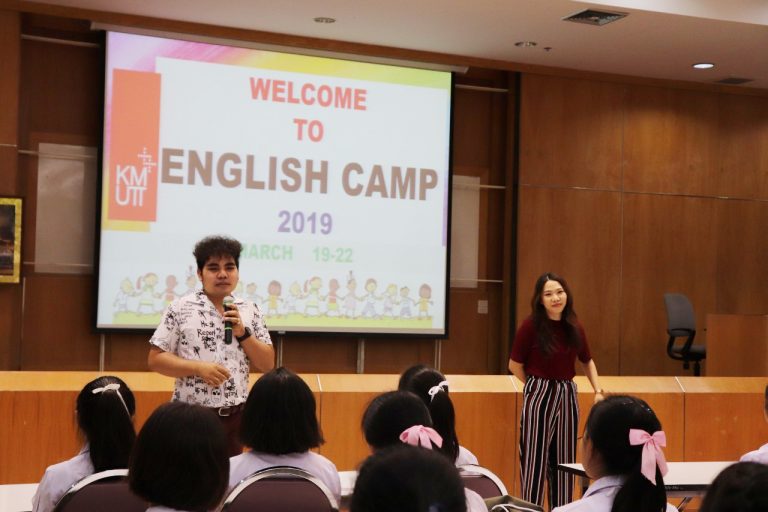
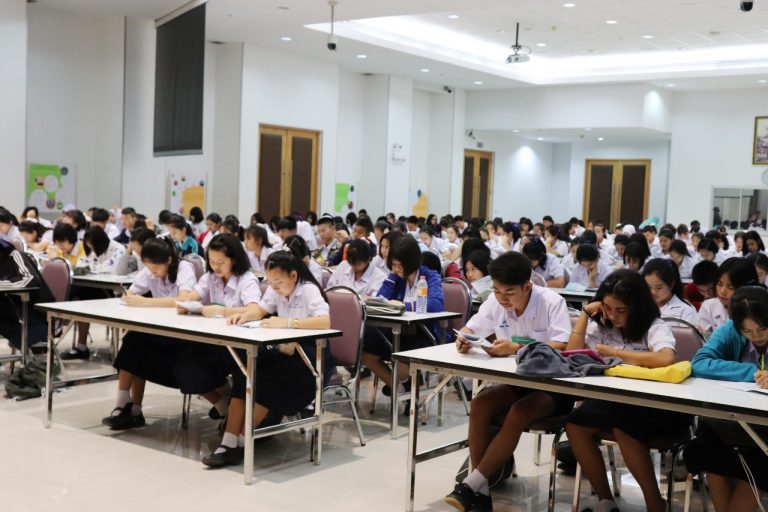
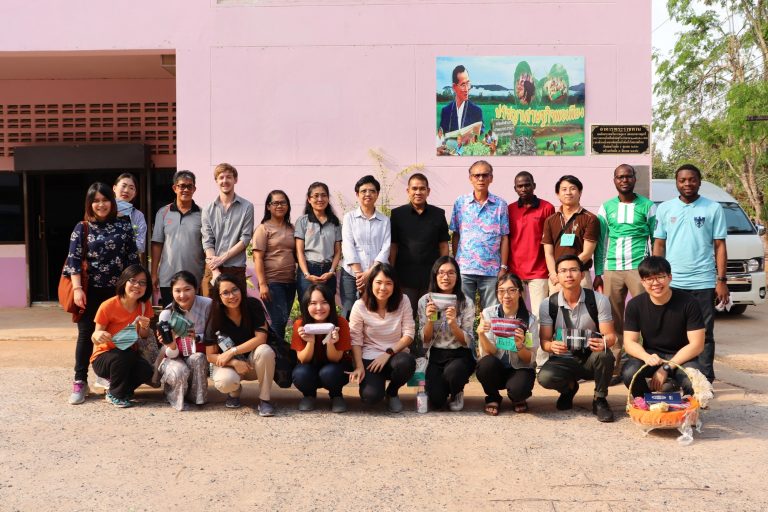
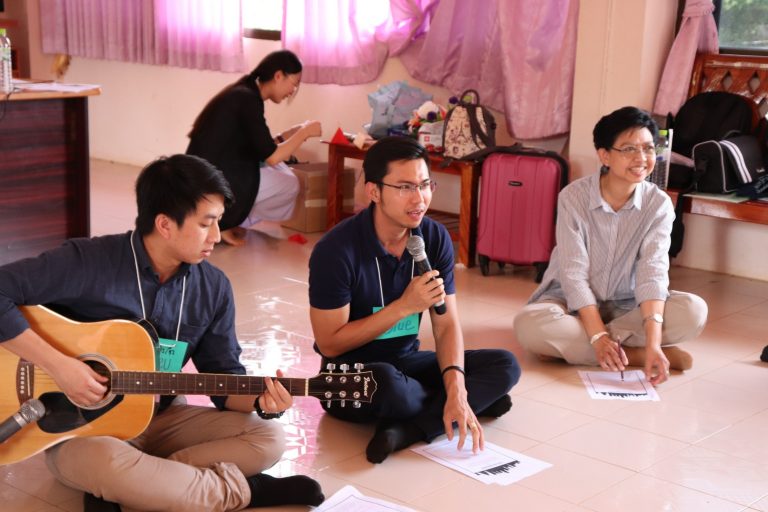
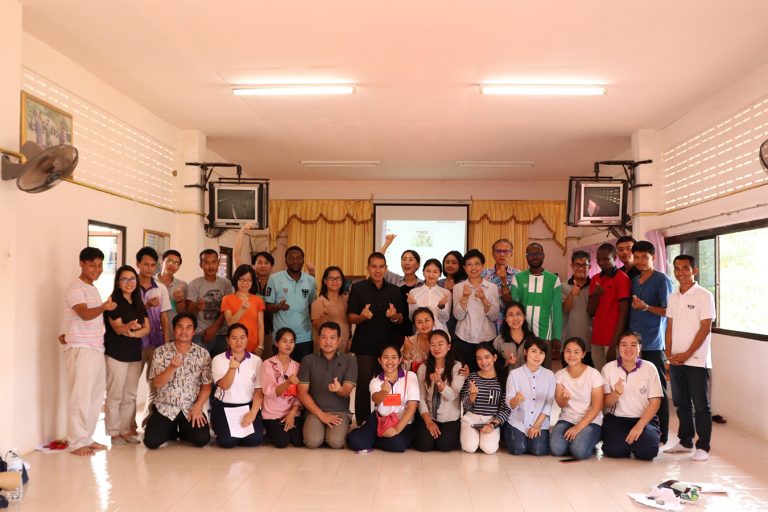
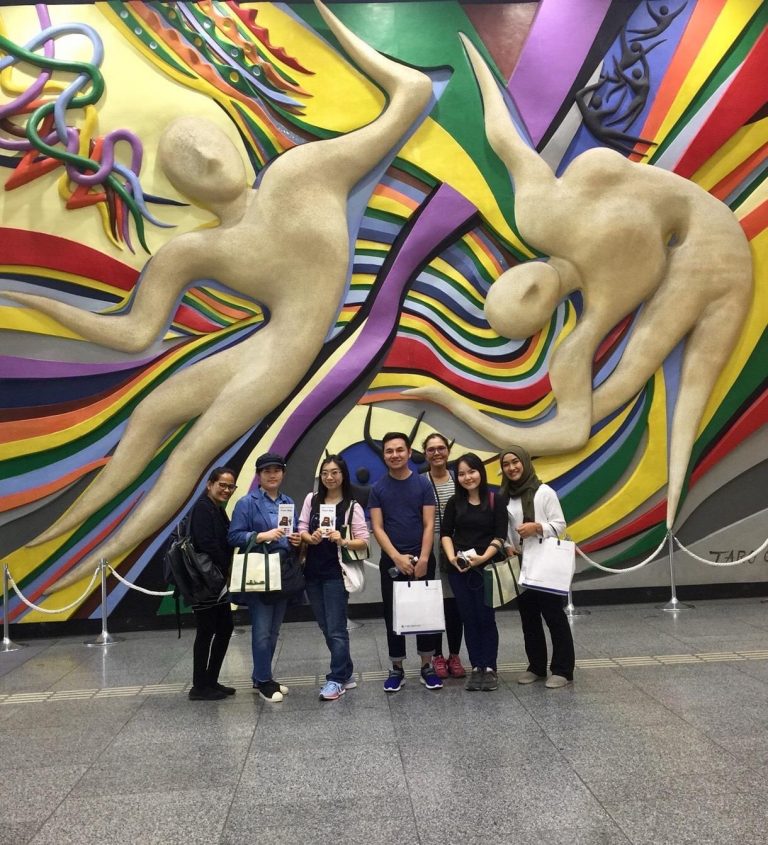
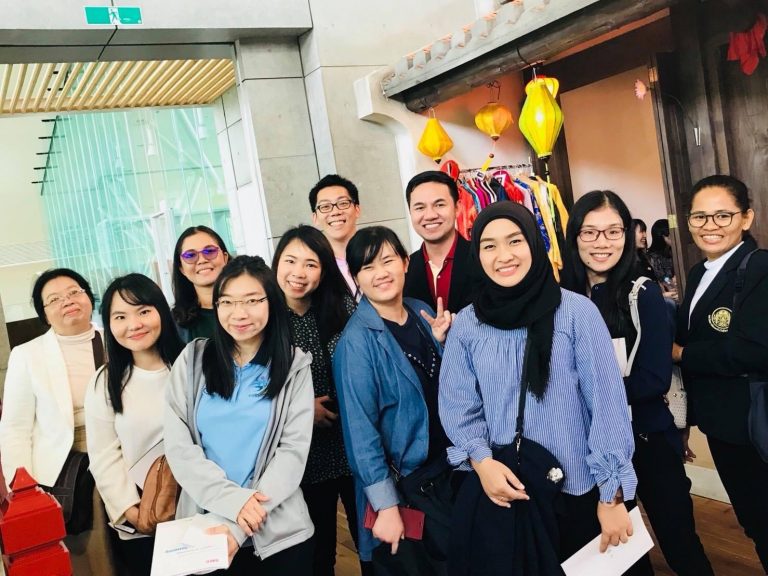
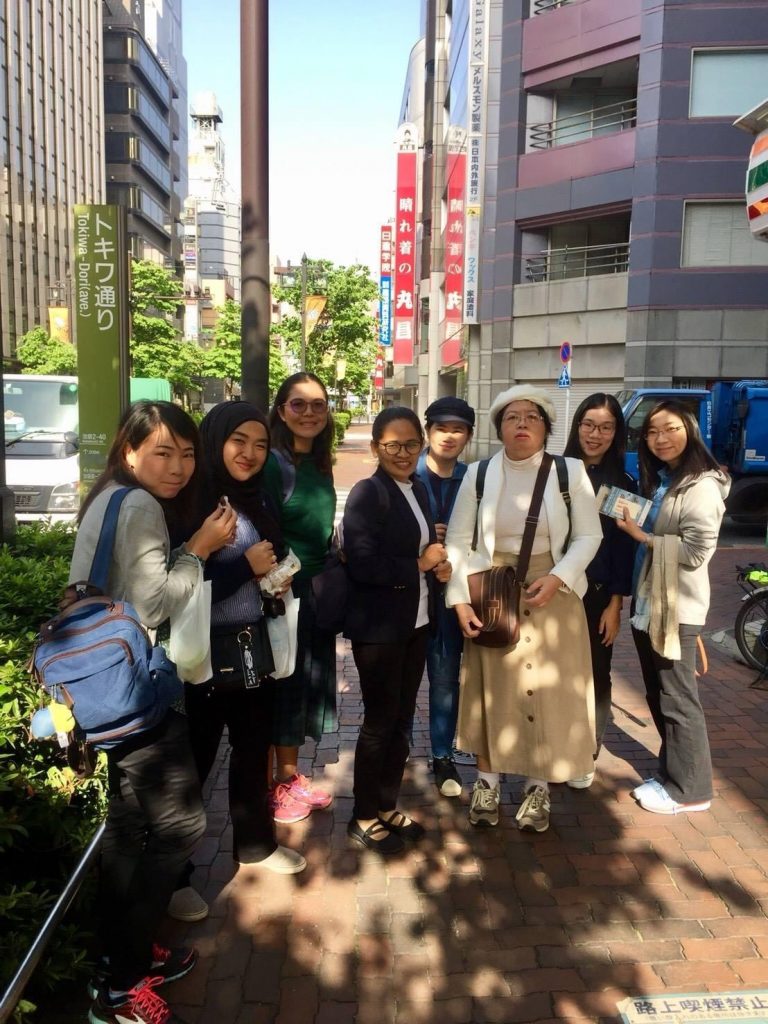

Tuition Fee (for both Thai and foreign students)
Weekday Programme (Monday to Friday)
| Tuition fees | Semester | Year |
| Education fee | 15,000 | 30,000 |
| Registration fee (1,500 Baht/Credit) | 13,500 | 27,000 |
| Expenditures throughout the course | 114,000 Baht/ Person |
Weekend Programme (Saturday to Sunday)
| Tuition fees | Semester | Year |
| Education fee | 18,000 | 54,000 |
| Registration fee (2,000 Baht/Credit) | 12,000 | 36,000 |
| Expenditures throughout the course | 180,000 Baht/ Person |
** This amount Excludes other expenses such as accident insurance and health insurance card. **
The university provides scholarships to support students who have potential and capability. The scholarship will be granted within the study period specified in the curriculum (2 years for M.A. in AES) and under indicated conditions of each scholarship. Moreover, the students have to maintain a GPAX. score of at least 3.25.The scholarships are subject to availability and they are very competitive. Students who would like to apply for a scholarship need to clearly state their intention for it in the early state of the recruitment process.
1.The Petchara Pra Jom Klao Master’s Degree Scholarship
This scholarship aims at promoting students with distinguished academic capabilities and enhancing their research and development experience. Only 1 Petchara Pra Jom Klao Mater’s Degree Scholarship is granted for the programme for each academic year.
The scholarship covers
– Tuition Fee
– Monthly living expenses 8,000 THB/Month
(The scholar recipient whose research has been published in Q1 or Q2 international journal for corresponding field of study, provided that he/she is the First Author, in Web of Science database or Scorpus as announced latest on the date of submitting for publishing, shall be provided 10,000 Baht per article in Q1 and 5,000 Baht per article in Q2. The provision shall be considered after being notified for publishing the article or after the article has been published. However, the provision shall be arranged within the programme period.)
2. The Greater Mekong Sub-region Country Scholarship (GMS)
This scholarship is specially granted to staff and students of the Greater Mekong Sub-region country: Lao PDR., Cambodia, Myanmar, Vietnam, and China (specifically Yunnan Province). It has to be granted through the active recruitment process only.
The scholarship covers
– Tuition Fee 60,000 THB/Year
– Credit fee 80,000 THB/Year
– Accommodation 3,000 THB/Month
– Health and Accident Insurance 2,300 THB/Year
3. Multi-intellectual Scholarship
This scholarship is specially granted for students from Cambodia, Lao PDR., Myanmar and Vietnam. However, it is very competitive as only 2 Multi-intellectual Scholarships are offered university-wide each year. It is granted to express gratitude and obligation to Her Royal Highness Princess Maha Chakri Sirindhon for her contribution towards education in Thailand and neighboring countries. The scholarship covers
– Tuition Fee
– Monthly living expenses of 10,000 THB/Month
– Study equipment 10,000 THB/Year
– Health and Accident Insurance 2,300 THB/Year
4.KMUTT international Scholarship Program (KISP)
This university level scholarship is granted to comply with the internationalization policy to increase the number of international students. KISP is offered to students from international countries except Vietnam, Lao PDR., Myanmar, and Cambodia.
The scholarship covers
– Tuition Fee
– Monthly living expenses 10,000 THB/Month
– Study equipment 10,000 THB/Year
– Health and Accident Insurance 2,300 THB/Year
5. SoLA Financial Support
SoLA offers several sources of financial support for students with excellent academic performance.
- Students who choose to conduct a 12-credit thesis can apply for a research grant that covers their tuition fees and credit fees for their second year.
- Students who are interested in gaining some work experience in academic settings can work as a teaching assistant or a research assistant or run activities for developing undergraduate students’ global competence which is one mission of SoLA.
SoLA also provides funding for students to present their papers in an international conference in Thailand but that conference has to have proceedings.
The programme welcome applicants who hold a Bachelor’s degree in any fields from an accredited academic institution.
Applicants can choose to study in the weekdays or the weekends programme.
- The weekday programme starts in the first semester of any academic year (around August)
- The weekend programme starts in the second semester of any academic year (around January).
Admission schedule: Admission is open all year round through KMUTT central admission channel : https://join.kmutt.ac.th/en/projects
Applicants are strongly encouraged to submit their applications before each round deadline.
Admissions Schedule for Thai students (within June 23, 2026) : Click
A Admissions Schedule for International students (within May 31, 2026) : Click
Admission procedure:
Selection is based on two aspects: 1) English proficiency and 2) Interview.
- English proficiency: To assess applicants’ English, they can either take the internal language proficiency test, or produce evidence of having achieved the following IELTS, TOEFL scores.
| Internal Test | IELTS | TOEFL IBT |
| 50 | 6 | 70 |
Suitable applicants with insufficient English are required to take a non-credit English Language Improvement course.
- Interview: The interview aims at exploring applicants’ attitudes and suitability. The Admission Committee will consider these from the academic history, English proficiency, goals and commitment to completion of the program and recommendations.
Forms
1. Form G.3_3 credit
2. Form G.3_6 credit
3. Form G.3_12 credit
4. Proposal Exam Form_12 credit
5. Thesis Committee Form
6. MA Graduation
7. Agreement on Intellectual Property Rights Transfer
Thesis Templates
1. Thesis Manual (English)
2. Template Thesis (English)
3. Format IS (3 credit)
4. Ref.
5. Thesis example
- IS (3 Credits)
- Research Study (6 credit)
- Thesis (12 credit)
Contact Information
For additional information, please contact:
For academic queries
- Dr. Rachanee Dersingh
Tel: 02-470-8764 Fax: 02-428-3375
E-mail: rachanee.der@mail.kmutt.ac.th - Dr. Punyapa Saengsri
Tel: 02-470-8760 Fax: 02-428-3375
E-mail: punyapa.sae@kmutt.ac.th - Dr. Napak Chotswasd
- Tel: 02-470-8760 Fax: 02-428-3375
- E-mail: napak.cho@kmutt.ac.th, napak.cho@mail.kmutt.ac.th
For administrative queries
- Khun Puthta Kaewsrijai
- Tel. 02-470-8770 or 081-4023817
- Line ID ; Puthta
- School of Liberal Arts
King Mongkut’s University of Technology Thonburi
Prachauthit Road, Thnung Kru, Bangkok 10140
